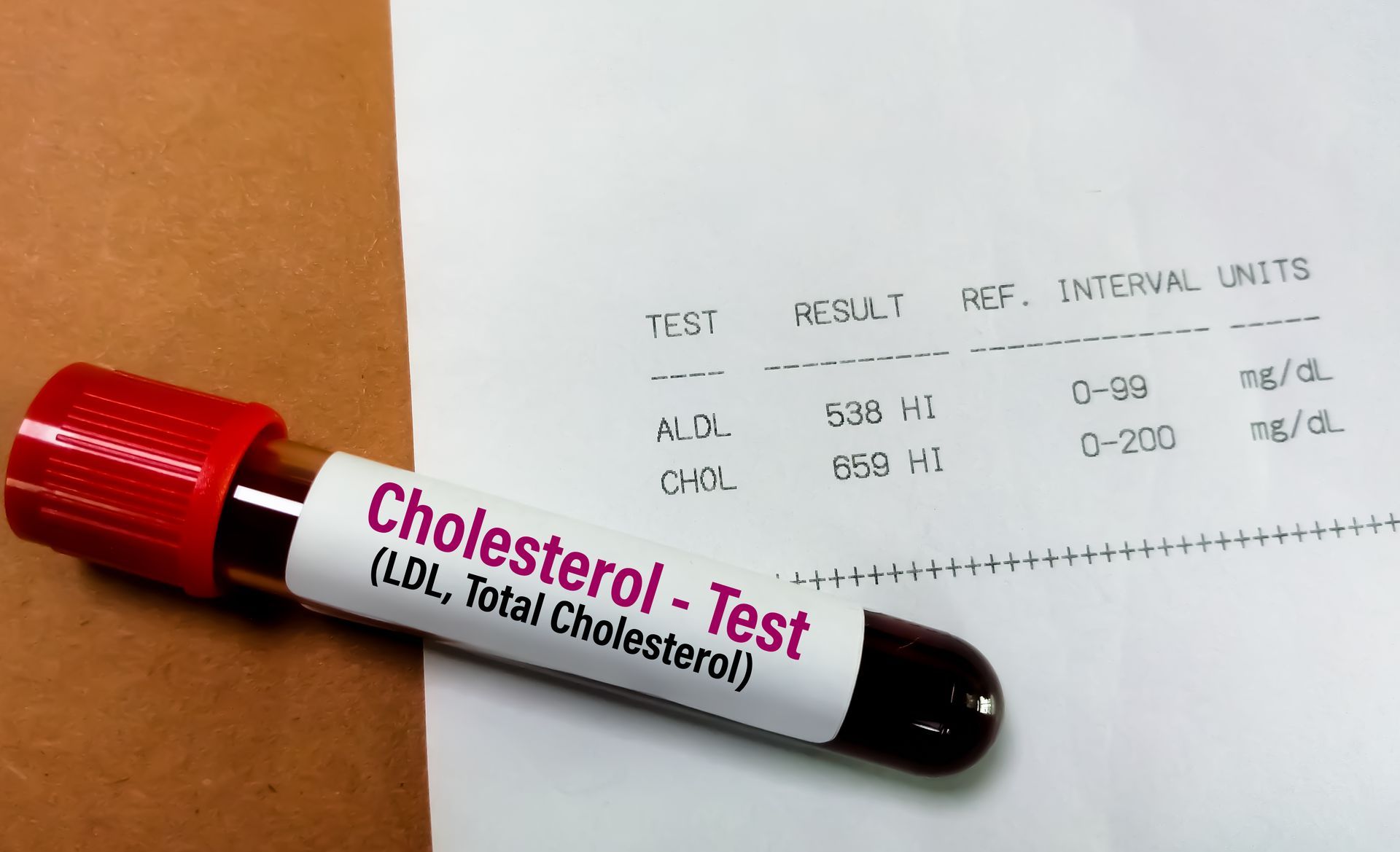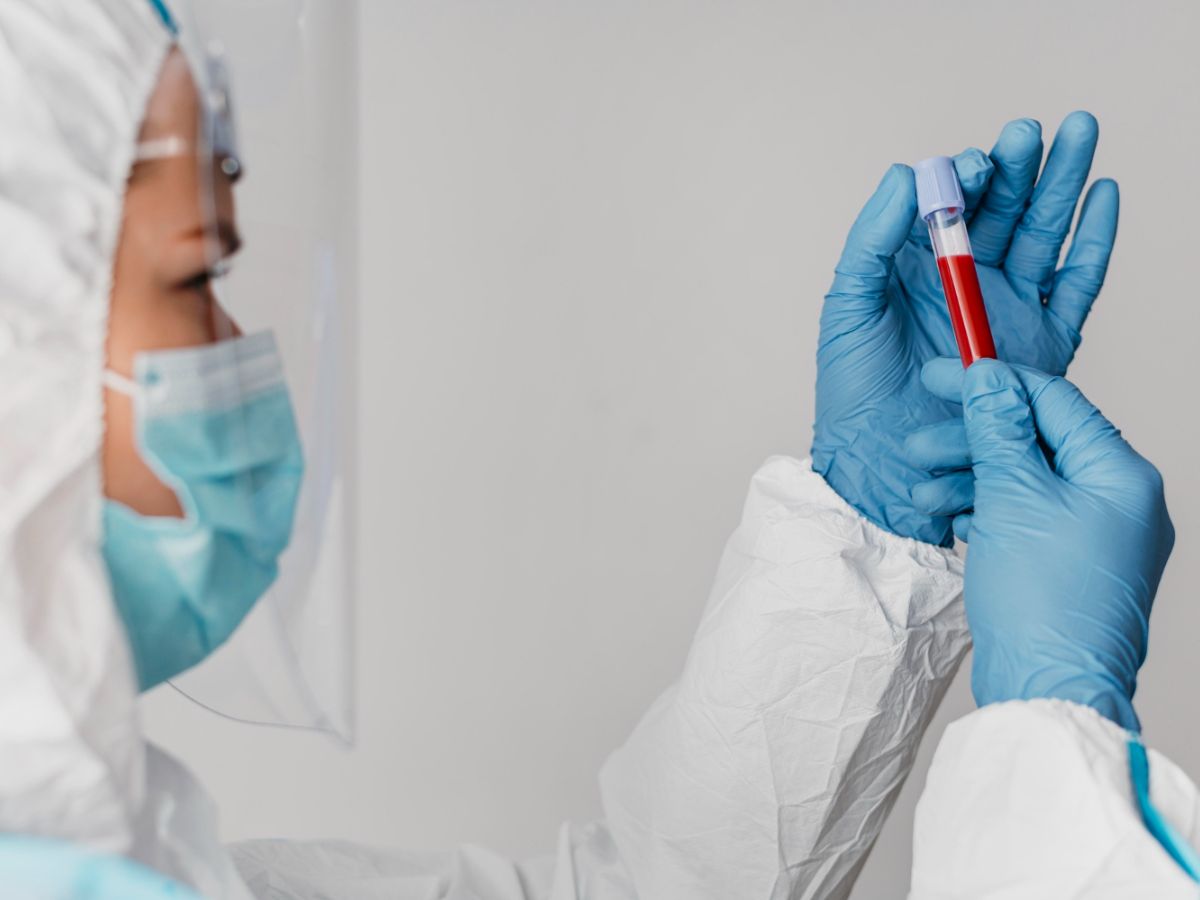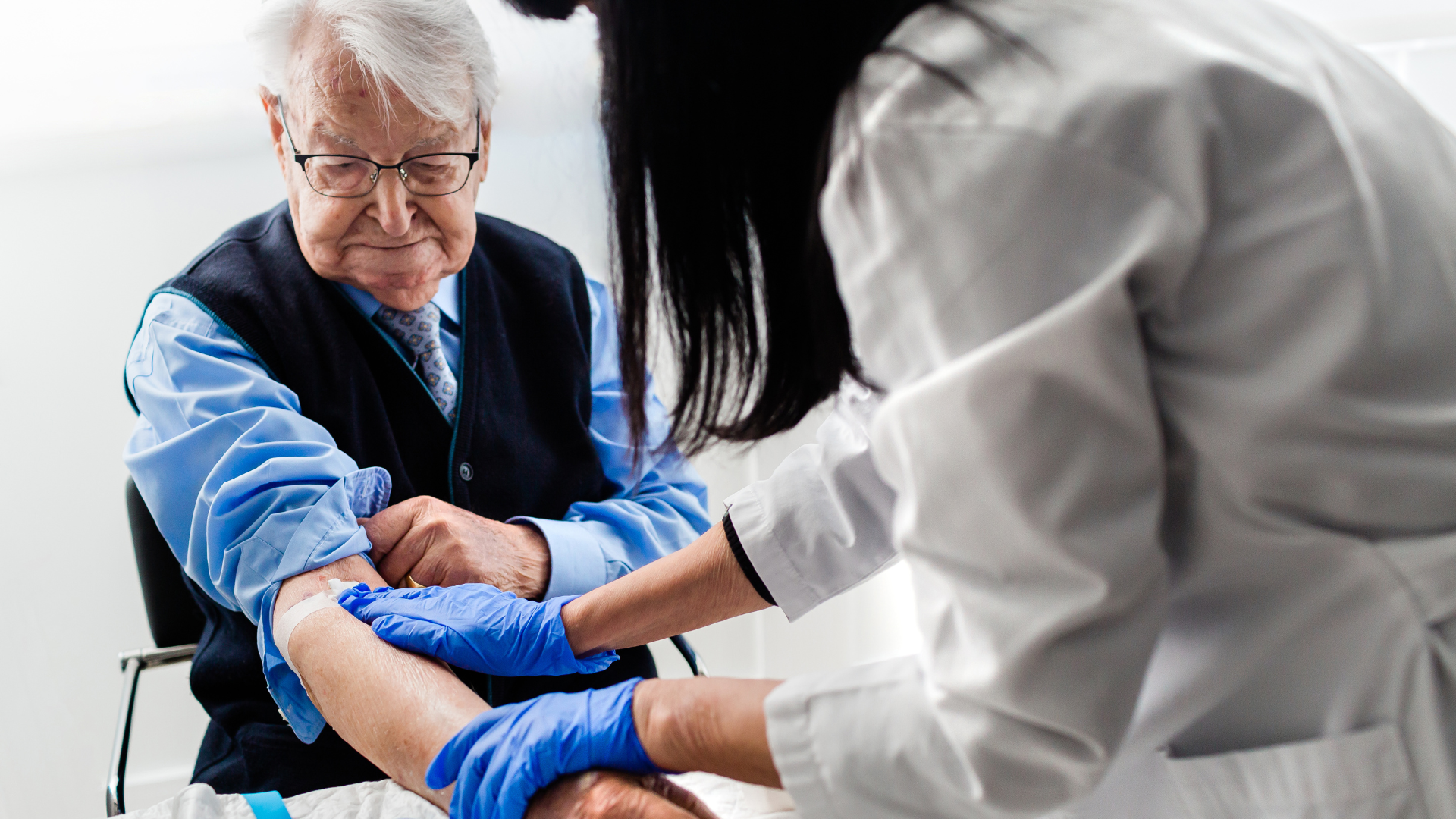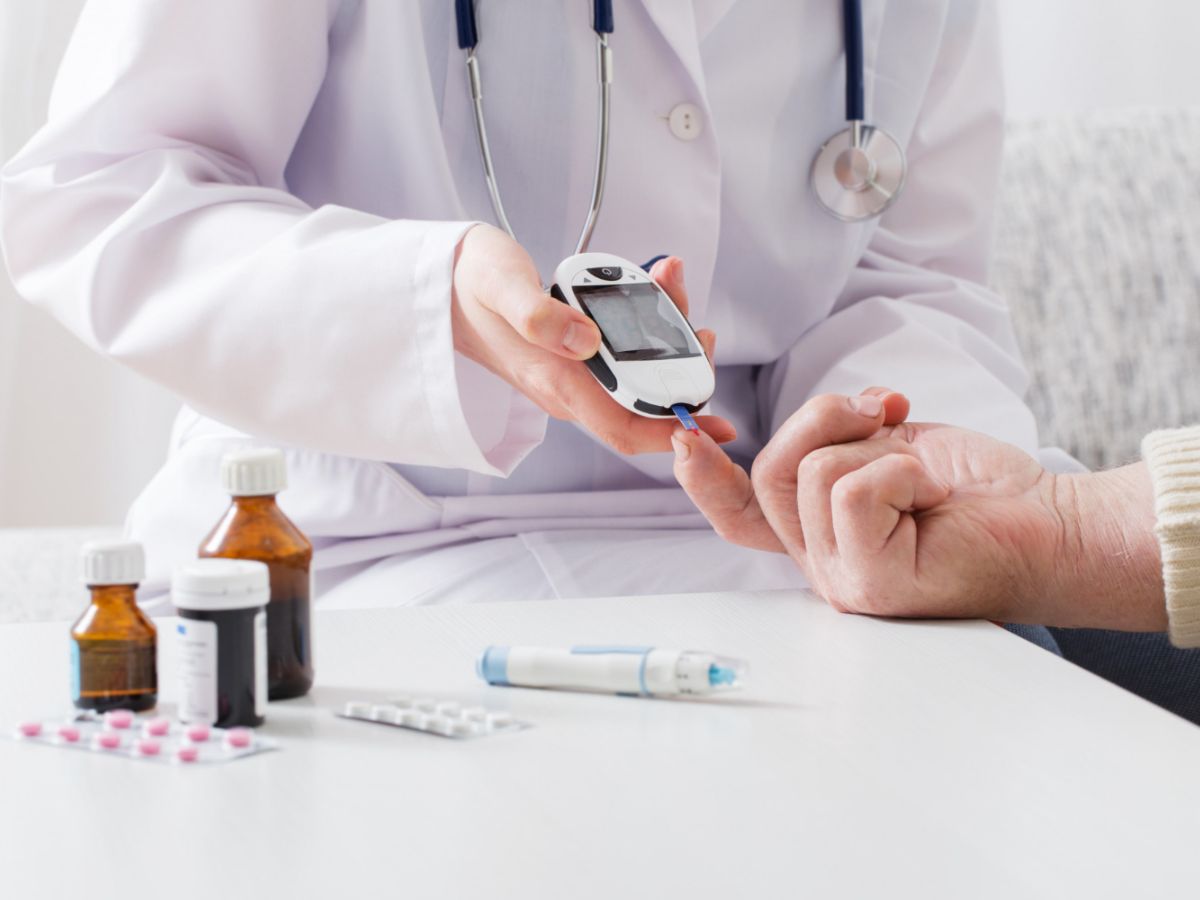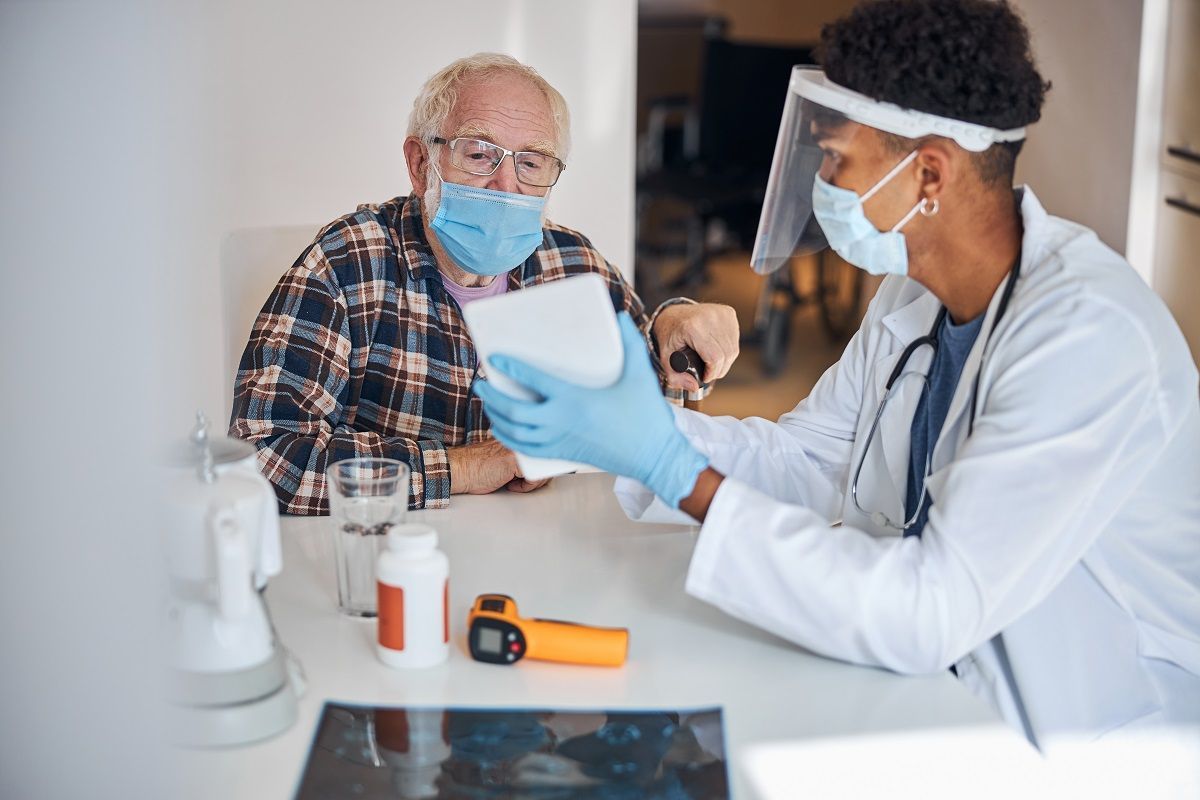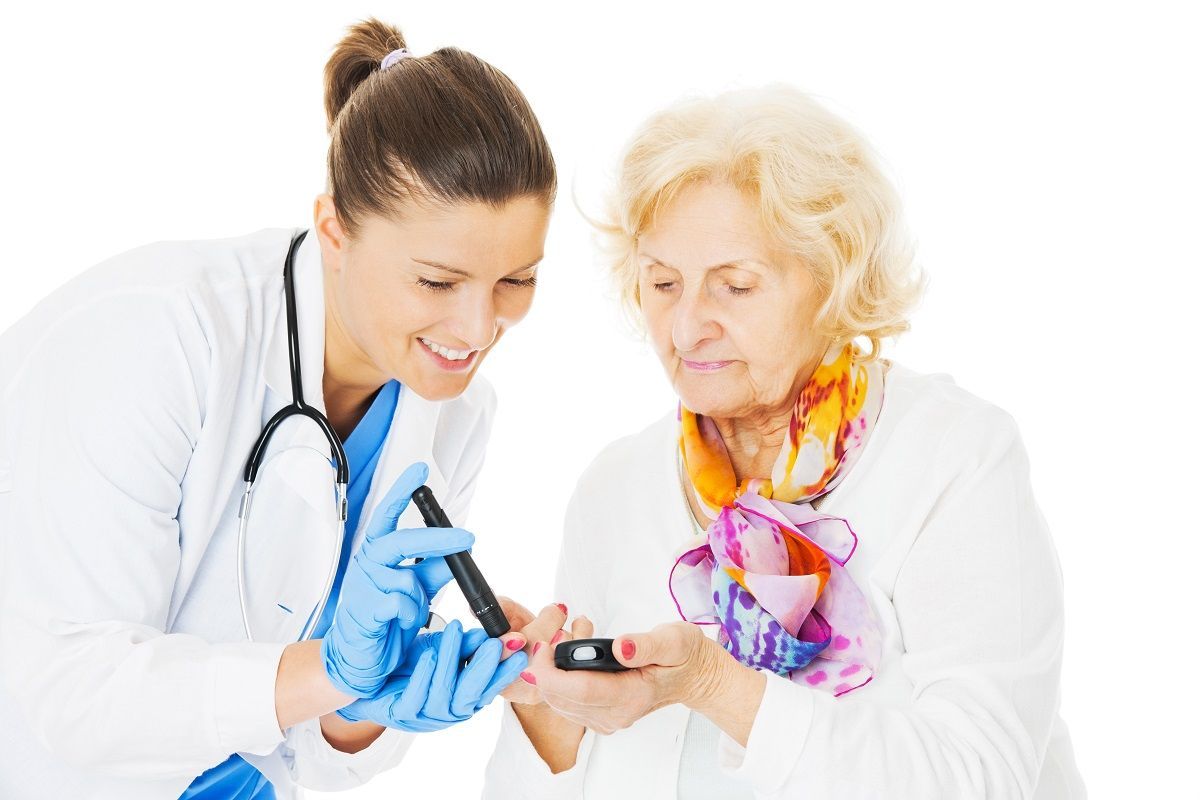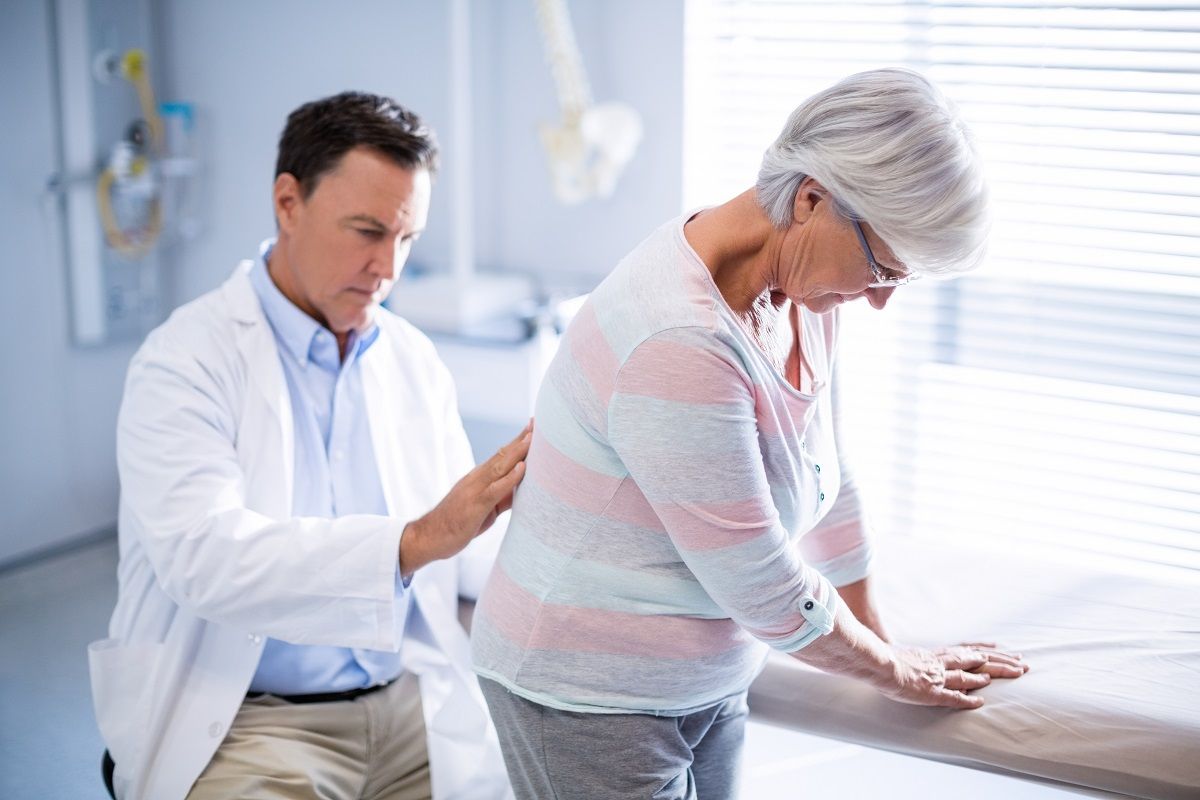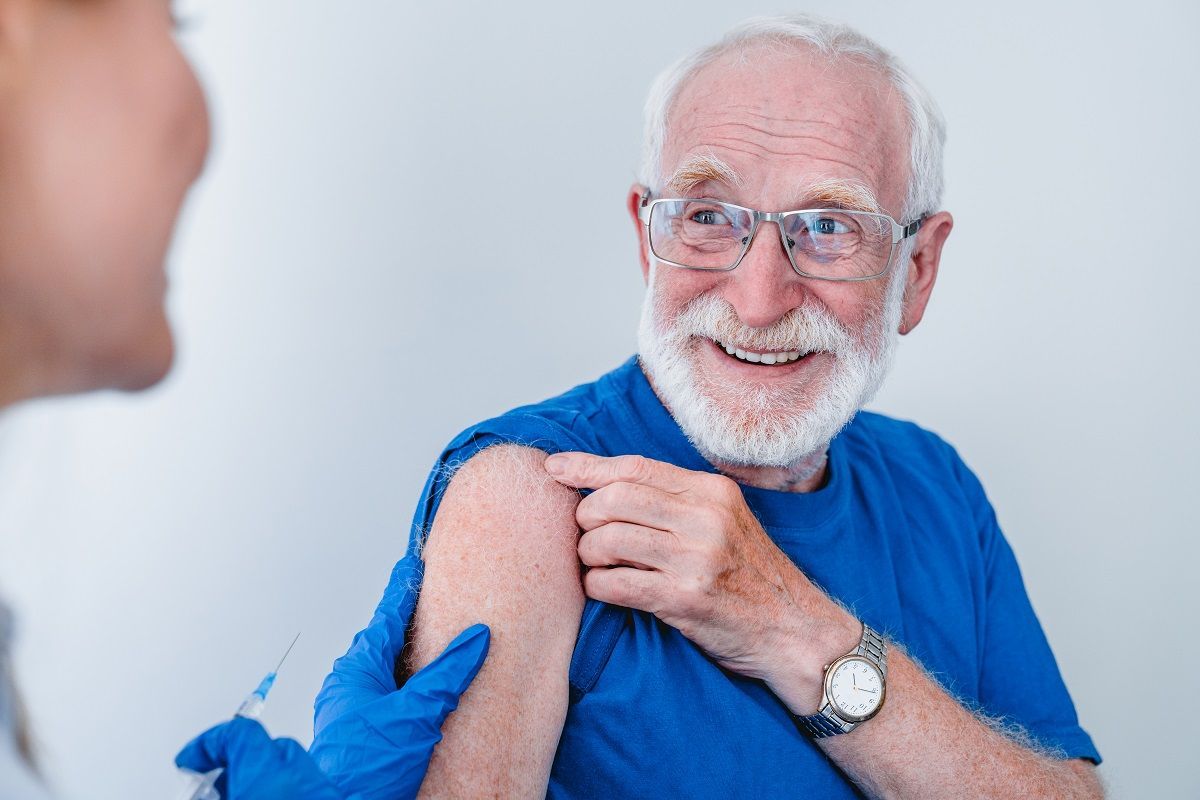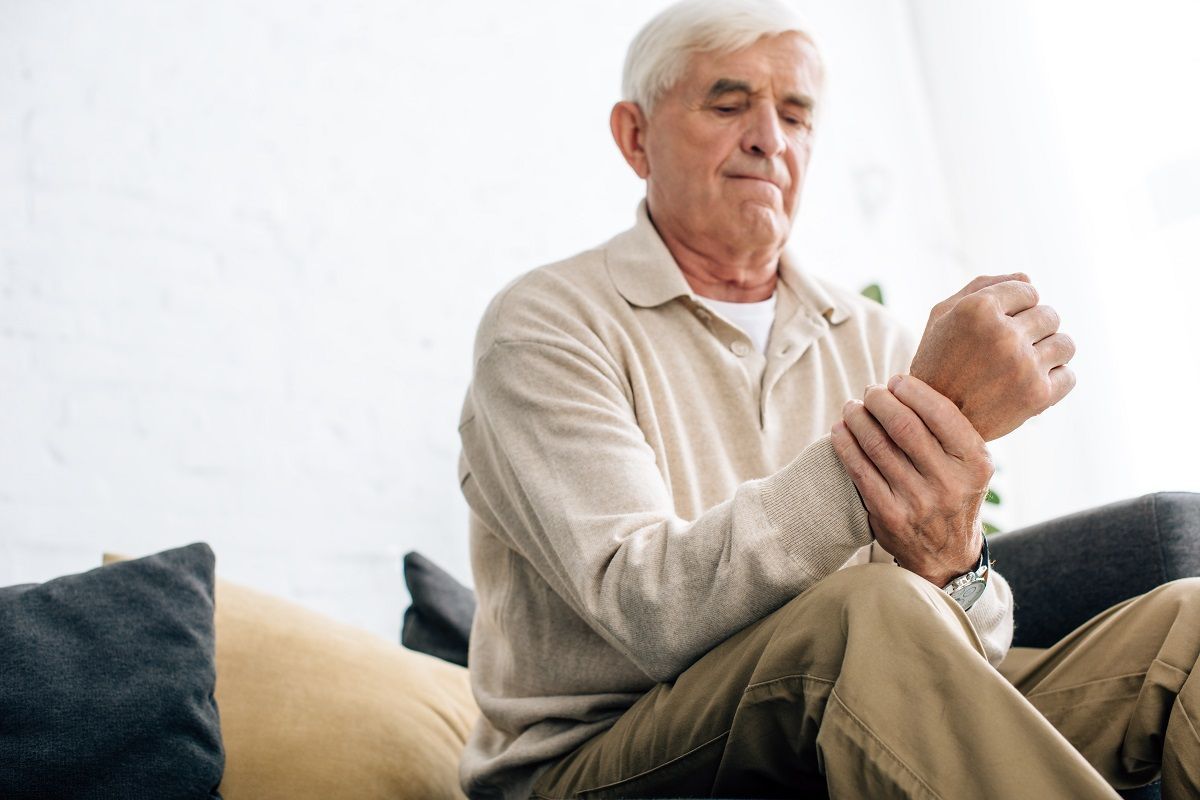Our Location
Elige tu idioma:
How to Manage Hip Pain in Seniors
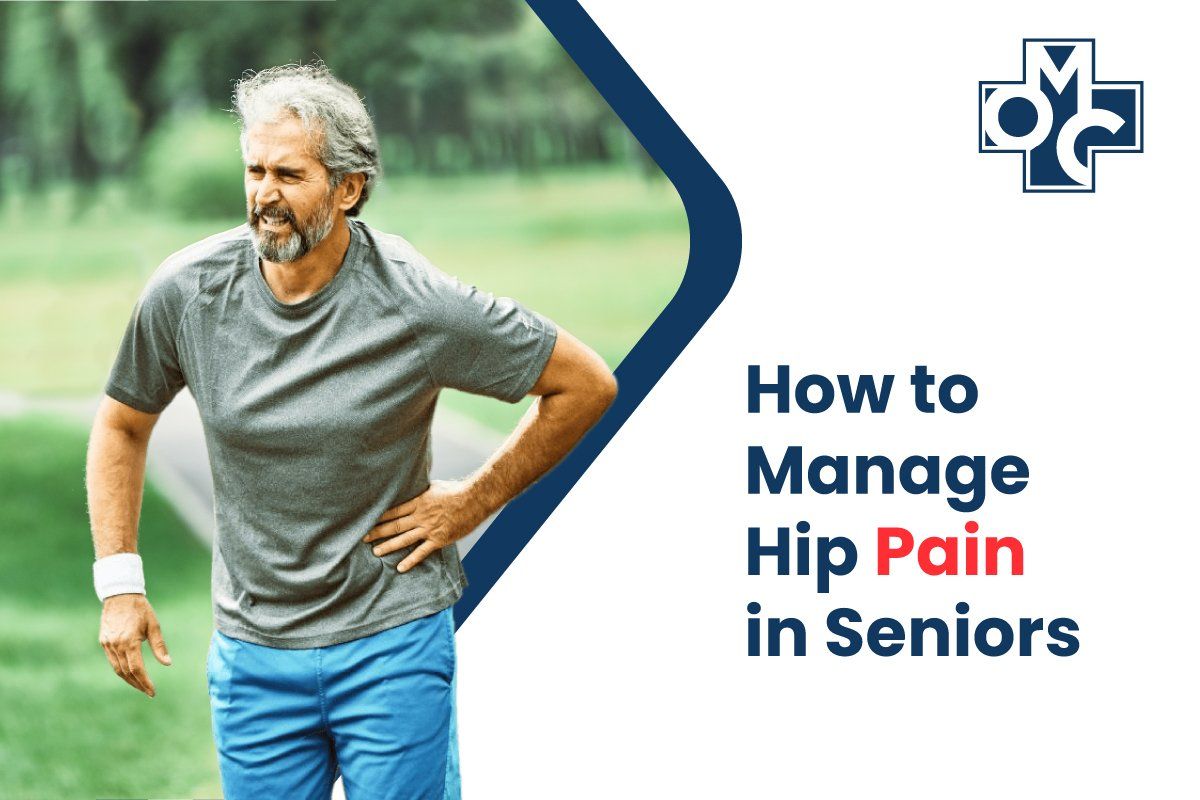
Hip joints must be strong enough to support your body weight while standing or sitting and spring into action when you run or jump. These joints facilitate movement in our body, and seniors need to maintain mobility as they age. A problem with this joint can cause hip pain, making it difficult to carry out everyday tasks. The great thing is that there are many ways to manage hip pain in seniors. These measures can help reduce your pain so you can stay active and enjoy your golden years!
Read on to find out more about hip pain.
What is Hip Pain?
Although they are common in all ages, hip pain and other symptoms are more likely to develop as we age. The prevalence of hip osteoarthritis is about twice as high in people over 45 years old compared with those under 45 years old. In fact, 50% of older adults report having problems with their hips or knees.
Hip pain can occur in the back of your hip, in the front of your hip, or in both areas. Pain may radiate into your groin or down your leg to the knee or ankle. Sudden hip pain that is sharp, stabbing, and intermittent may indicate a more serious problem than just inflammation of tendons or cartilage in one area of the joint.
Here are some things that could indicate they need medical help:
- a limp or difficulty walking
- pain that gets worse with activity
- a catch or clicks when you move your hip in certain ways
- hip pain with numbness, tingling, or weakness down the foot or the leg
- pain that worsens when you lie down and improves when you stand up or walk around
- hip pain that comes with other symptoms, such as fever or chills
If you have any concerns about your hip pain or if it persists for more than two weeks without improvement, see your doctor for an examination.
Common Hip Joint Pain Causes
Several factors can cause hip pain in older adults, including
- arthritis
- muscle strain or spasm
- injury
- bursitis
- tendinitis
Arthritis
Arthritis occurs when cartilage becomes worn down, and bones can rub together, causing pain when moving or even resting. It's more common in older age groups due to wear and tear over time. This degenerative condition can cause inflammation, pain, swelling, stiffness, and decreased mobility in the area around the joint. Below are two of the most common forms of arthritis.
- Osteoarthritis
Most cases of hip pain in the elderly are due to osteoarthritis, a degenerative joint disease in which cartilage gradually wears away. This condition can result in bony spurs pinching overlying tissue and limiting movement. Hip pain in elderly women caused by osteoarthritis is more common than in men.
- Rheumatoid arthritis
Rheumatoid arthritis is an autoimmune disorder that causes inflammation of joints. A type of white blood cell attacks joint tissue, causing painful swelling around the joint, making it difficult to move freely.
Muscle strains
Strains affect muscles throughout the body, including those around the hips. A strain occurs when a tendon or muscle pulls away from its attachment site on bone or overuse causes micro tears within the muscle fibers.
Injury
An injury or trauma to the area around your hip bone can also cause hip pain. For example, if you fall on your hip and twist it in a certain way, it could cause damage to tissues around your hip joint, leading to inflammation and swelling in the surrounding tissues and muscles. If this happens repeatedly or over time, it can lead to chronic pain in that area. Some hip fractures are serious injuries that often require surgery and extensive rehabilitation to recover full function and mobility.
Bursitis
Another common cause of joint pain in the hips is bursitis. This inflammatory condition affects one or more bursae, which are tiny fluid-filled sacs around joints that help reduce friction between bones by allowing them to glide over each other more easily when you move your body parts around.
Tendinitis
Tendinitis occurs when there's inflammation or irritation of a tendon. It's usually caused by overuse, repetitive stress to the tendon, and trauma, such as an exercise injury or fall.
Diagnosing Hip Pain
A doctor may ask about your symptoms and areas of discomfort. In addition, they will also ask you questions about your lifestyle and medical history to determine past illnesses and injuries that might affect your current condition.
Then, the doctor will do a physical exam. They will look for tenderness over the bones of the pelvis or thigh bone and feel for muscle weakness in your legs. Next, the doctor will evaluate your gait and balance and your ability to carry out daily activities.
To further diagnose arthritis, your doctor will also order fluid and imaging tests. These tests include:
- Ultrasound
- X-ray
- magnetic resonance imaging (MRI) scan
- complete blood count (CBC)
- CT scans
Treatment Options: How to Ease Hip Pain in Elderly
There are a variety of treatments for hip pain, depending on its underlying cause. Your doctor will give you options based on the results of your diagnosis. Here are six different ways how to relieve hip pain in elderly:
Ice therapy
Seniors suffering from hip pain can benefit from ice packs. It helps reduce inflammation and swelling in your muscles and joints, which results in less pain after applying it for several minutes at a time.
Heat therapy
You can also use heat therapy. It works well for many people with hip pain because it helps relax muscles and increase blood flow throughout the body. It also improves circulation throughout affected areas, which helps speed up healing time when treating minor injuries such as sprains or strains.
Medications
Consult your doctor if you experience recurring hip pain lasting more than a few days or weeks. Your doctor may recommend medications such as acetaminophen (Tylenol) or nonsteroidal anti-inflammatory drugs (NSAIDs) to help relieve pain until your hip gets better. Alternatively, you can opt for injections containing steroids that soothe inflammation and joint pain.
Physical therapy
Physical therapy is among the most effective treatments for seniors suffering from hip pain. It helps by restoring mobility and strength with exercises targeting specific hip joint areas. The activities are tailored to your needs and abilities and may include stretching, strengthening, and balance exercises.
Hip protectors
Hip protectors help prevent injury to the affected area by reducing friction between your skin and clothing, which can cause pain. You can buy these products over-the-counter in drugstores or order them online.
Surgery
If you have severe chronic hip or back pain, you may need surgery to repair damage to parts of your hip or back. Some people with arthritis of the ball-and-socket joint will eventually require joint replacement surgery, which replaces worn cartilage with prosthetic components. Total and partial hip replacements are one option for people with serious osteoarthritis who have lost mobility from damaged cartilage within the hip socket.
8 Ways to Prevent Hip Pain
Taking certain steps can reduce your risk of developing hip pain in the first place. Here are some suggestions for how to avoid hip pain in seniors:
- Avoid sitting for long periods, especially if you have a hip problem. If you're going to sit for more than 20 minutes, try standing up and walking around once in a while.
- Ensure your mattress is firm enough that it doesn't sag in the middle.
- When you have time to sit down, try not to cross your legs or ankles too tightly—it can strain the joints of your hips and lower back.
- If you're doing something like gardening or yard work, use proper form, especially when lifting heavy objects.
- Exercise primarily prevents hip pain in seniors by keeping muscles and tendons strong and flexible. Exercises for hip pain for seniors should not be strenuous and may be a good option for you. A simple routine of walking around the neighborhood, gentle yoga, or riding a stationary bike can go a long way toward preventing hip pain later in life!
- Avoid alcohol, caffeine, and tobacco products—all of which can contribute to joint pain and other health problems in the long run!
- Keep up with regular checkups with your doctor to detect problems earlier
- Make sure you wear comfortable shoes with good support and cushioning that doesn't stress the hip area.
Find the Best Remedy for Hip Pain at Ocana Medical Center!
Don't let hip pain keep you from living a full and active life. Whether you are experiencing the discomfort for the first time or have been dealing with it for years, many steps can be taken to help ease your discomfort and improve mobility in your joints.
If you're looking for "hip pain treatments near me," Ocana Medical Center has the answers! We can help you understand your treatment options and provide an expert diagnosis for your condition. Please contact us at (813) 968-8314 or visit our website at www.ocanamedicalcenter.com to make an appointment online.
Ocana Medical, located in Tampa, FL, aims to bring you as much information as possible to keep you healthy. We're in this together. #ocanacares
“Respect. Compassion. Quality. Integrity. These are the values on which Ocana Medical Center was built. Our aim isn’t just to treat you today. We hope to earn your trust and be your healthcare provider for life.”
©2023 Ocana Medical Group, Inc.
USEFUL LINKS
GET IN TOUCH
Call Us Today
Send us Email
Our Location
Ocana Medical Center | All Rights Reserved.



